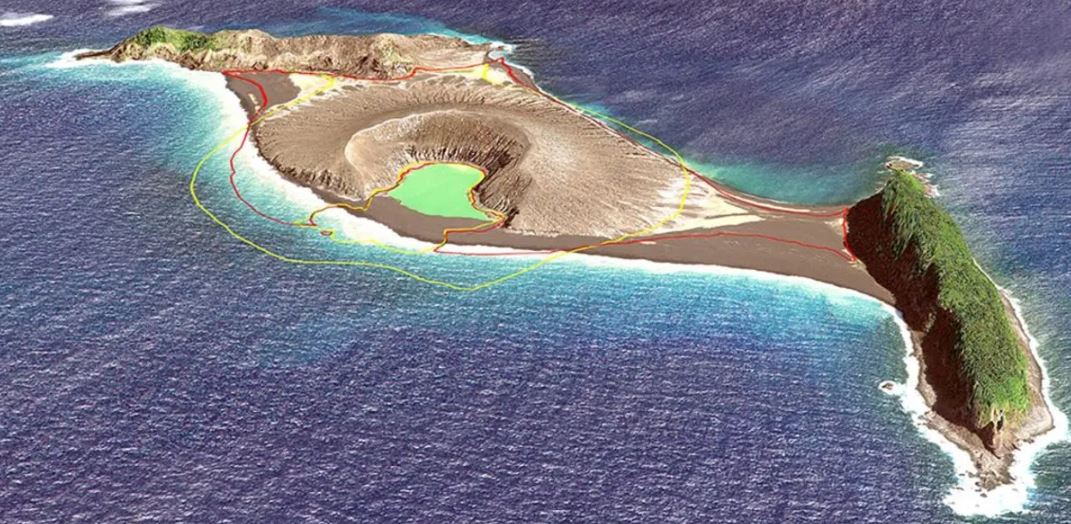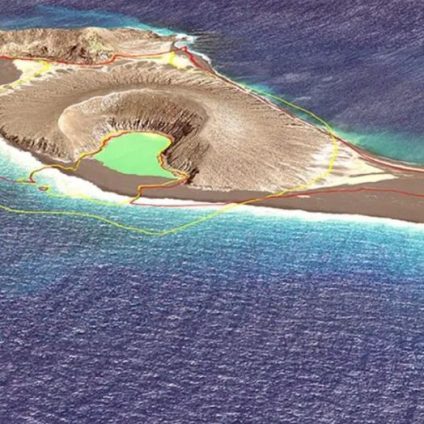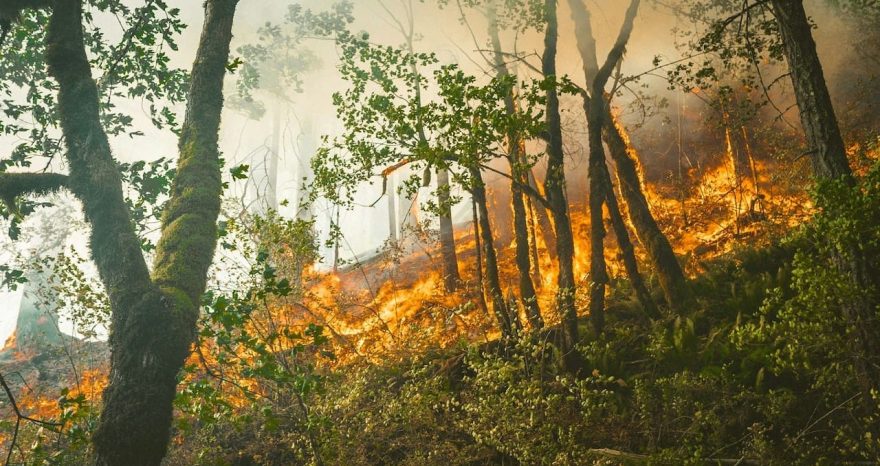Little sulfur dioxide, a lot of water projected into the stratosphere: thanks to this exceptional feature compared to the large eruptions known, that of the volcano of the Tonga islands has increased by 7% the probability of exceeding the 1.5
On January 15, 2022, the eruption of Tonga volcano emitted 146 Mt of H2O
On 15 January 2022, exactly one year ago, the Hunga Tonga-Hunga Ha’apai volcano fired 146 million tons of water vapour and 0.42 million tons of sulphur dioxide (SO2) into the stratosphere. The immediate impact of the Tonga volcano eruption on global warming had been diminished. A new study reviews the accounts and launches a warning. The effect of the explosion of the submarine volcano will not be as devastating as that of past events such as the eruption of Pinatubo in 1991 (it cooled the global climate for 3 years of 0.5 to C) or that of Tambora in 1815 (1816 was called “the year without summer”). But it has increased the probability of exceeding 1.5 degrees at least once in the next 5 years.
Why is the eruption of Tonga volcano exceptional?
The reason is not so much the SO2. Volcanoes usually emit a large amount of these particles that, as long as they remain suspended in the atmosphere, reflect solar radiation and thus help to cool the global climate. In this case, SO2 is relatively little. The peculiarity of the eruption of Tonga volcano is another: the unprecedented amount of water released into the Earth’s atmosphere, equal to 58 thousand Olympic pools. And water vapor contributes to the greenhouse effect. This is supported by a study just published in Nature Climate Change.
“Most large eruptions are dominated by sulphur dioxide emissions, which temporarily cool the planet because they disperse incoming sunlight. The Tonga eruption was unusual because it released a large amount of water vapour into the stratosphere – a powerful greenhouse gas – with little sulphur dioxide emissions,” explains Stuart Jenkins of Oxford University, before signing the research. “Pinatubo and Tonga may have opposite responses to warming, which makes Tonga particularly interesting in the context of other recent eruptions”.
Read also Global warming, 2023 will be hotter than 2022
Although limited, the contribution of the Tonga volcano eruption to climate change will be relevant. Until 2022, the World Meteorological Organization estimated that the probability of exceeding the lowest threshold of global warming set by the Paris agreement by 2027 was 50%. The eruption makes it more likely that this will happen rather than not happen. The erupted material has reached a height of 57 km, falling for the most part in the stratosphere, the band between 10 and 40 km of height. The amount of water vapor that erupted alone increased the H2O content of the stratosphere by 15%.













